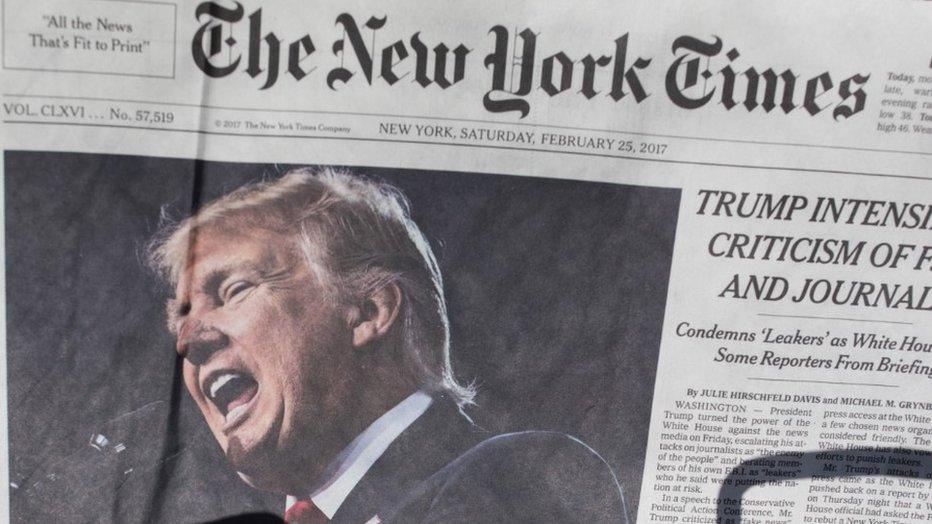Have American newspapers given Donald Trump a gift?
- Published
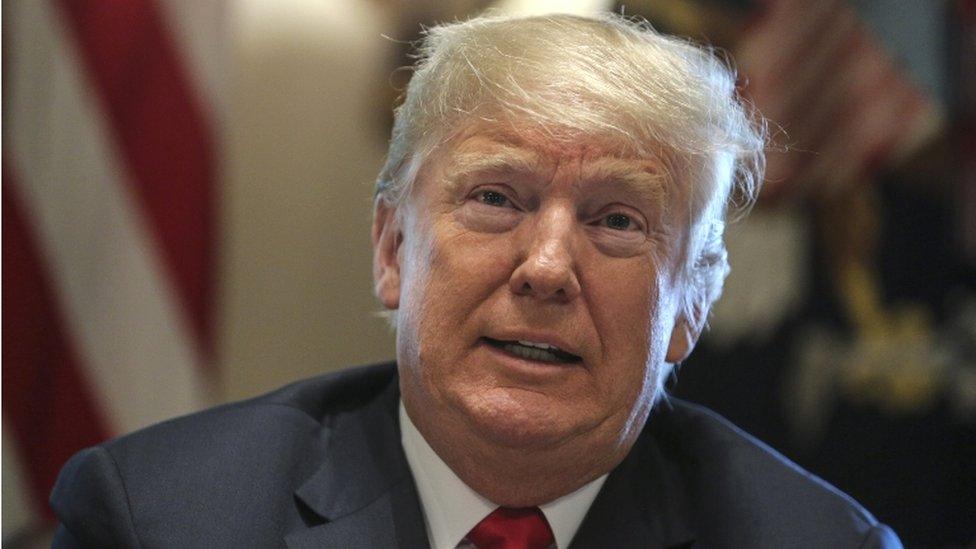
More than 350 American newspapers have co-ordinated editorials this week, condemning President Trump's attacks on the media.
The Bangor Daily News in Maine and Yankton County Observer in South Dakota don't usually have much in common.
But this week they belong to a collective effort by a somewhat beleaguered industry to declare themselves on the side of democracy. The implication being that the current occupant of the White House - in his attacks on traditional media at least - is not.
A generous interpretation of this joint effort is that solidarity is a precious asset in a trade that was battered by the internet long before it was battered by Mr Trump. By coming together to fight his undoubtedly vicious assault on the people he calls the "fake news media", newspapers might show that, together, they will not be cowed.
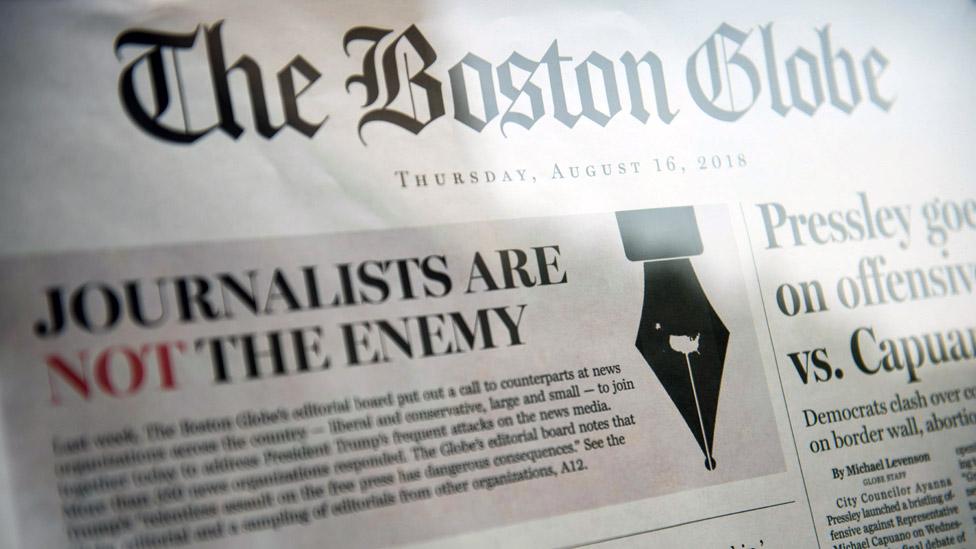
The Boston Globe's front page editorial
Moreover, aside from the editorials themselves, which between them will be read by millions of Americans, this joint effort is a marketing exercise. It allows titles, many of which have vanishingly few readers, to say "Hey, we're still here, busting a gut to bring you the news", even in the age of InfoWars and Twitter.
But a more realistic and sober assessment of the likely impact of this joint effort is that it is counter-productive, desperate and naive.
Giant angry lump
Throughout his candidacy and then presidency, Donald Trump has castigated the vast majority of the media by bunching them all together, with the exception of Rupert Murdoch's Fox News, which he seems addicted to.
Mr Trump, who is both a creation and a devotee of the Manhattan media scene, cares deeply about media coverage, but in his brutal put-downs of established journalistic organs has overlooked all the differences between operators in the trade.
To this, journalists had the strong retort that lumping them all together was plain silly: there are so many differences between publications, from political slants to editorial tone and the voices of different writers.
But now, these papers have come together in one giant angry lump. This is a gift to Mr Trump, whose railing against the "fake news media" becomes easier when all his targets line up holding hands. This co-ordinated action plays into his narrative about being the victim of a malign groupthink.
And what are the chances that it will actually work?
Try to picture a scene in the White House briefing room, where Sarah Huckabee Sanders, the president's spokeswoman, says: "President Trump has read many of the editorials published by your colleagues. They prompted sober reflection. With the benefit of hindsight, he now regrets tweeting a video of him wrestling CNN to the ground, and would like to re-set his relationship with American news media."
No, me neither.
Then there is the phoney element to all this. For the whole time that I have been the BBC's media editor, there has been a background noise about Mr Trump's war with the media.
As I have said repeatedly, he isn't the enemy of the press - he's their potential saviour. This is not a war. It's a marriage of convenience. Editorially, Donald Trump is the most riveting, detail-filled drama in the history of the modern West. People want to read about it. That's why, commercially, he has been a massive boon to US media.
Value in perspective
Subscriptions to quality titles like the New York Times and Washington Post are soaring. Website traffic for all publishers, including the likes of Buzzfeed, Vox and The Independent, have benefitted tremendously from Mr Trump's activity. And ratings for US TV news have also been hugely boosted. For the media, he is good business. Maybe some journalists, and not just at Fox News, should be thanking him instead.
I understand that there is such a thing as strength in numbers. But some humility from American journalists wouldn't go amiss. A huge proportion of US media, particularly liberal titles on either coast, completely missed the Trump story until very late in the day - in large part because they had, to their shame, lost touch with the tens of millions of people who might vote for him.
If you work for The Boston Globe, external, the paper co-ordinating this week's action, you are protected by the First Amendment, and for all that there may be physical discomfort at Trump rallies, you are still basically able to do your job and live in peace. That is more than can be said for reporters operating in Turkey or Russia today.
Imagine if all the effort that these hundreds of newspapers had put into chronicling their own sense of besiegement had instead gone into saving the lives, or highlighting the struggles, of those championing free expression in authoritarian regimes.
Grief in numbers
Yes, of course Mr Trump's attacks on news media are ugly, informed by deceit, and destabilising for an already fragile democracy. But a display of collective grievance which plays into his hands is a poor substitute for really fighting back - and, indeed, for persuading those who fall for the president's rhetoric that he is wrong.
Preaching to the choir is easy. Winning back the trust of a public that you have often failed of late is harder. Journalists should choose the less lazy path.
This is the script of an audio essay for the The World This Week, which was first broadcast on the BBC World Service on Saturday 18 August.
If you're interested in issues such as these, please follow me on Twitter, external or Facebook, external; and also please subscribe to The Media Show podcast, external from Radio 4. I'm grateful for all constructive feedback. Thanks.
- Published16 August 2018
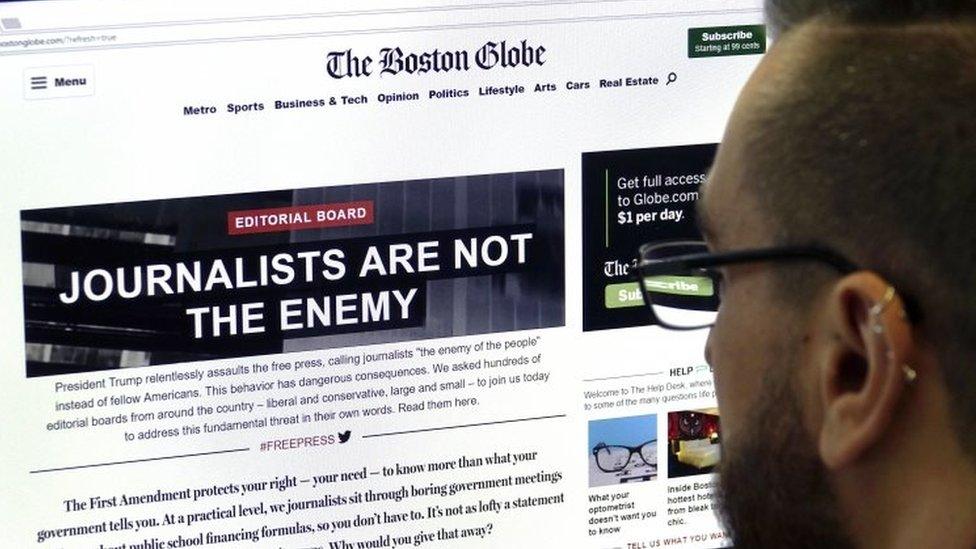
- Published2 August 2018
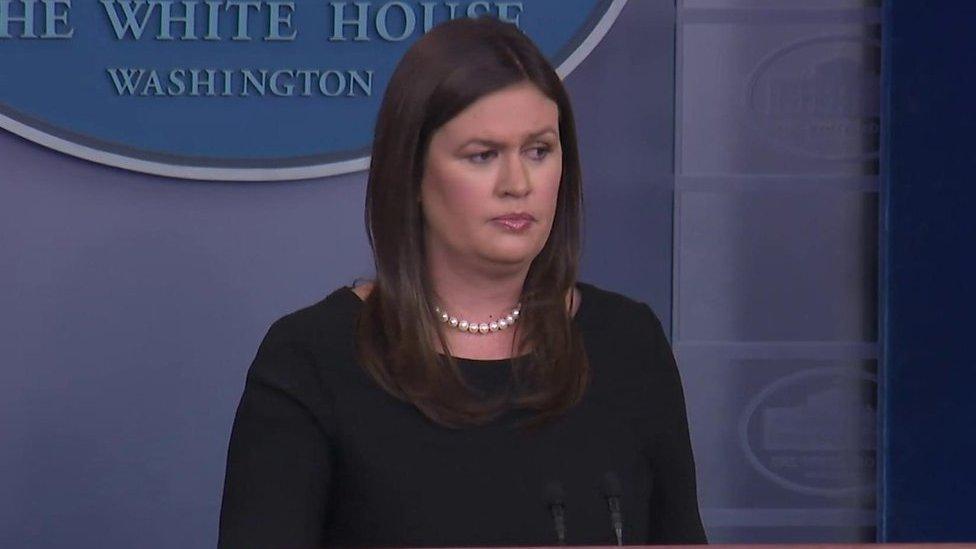
- Published2 August 2018
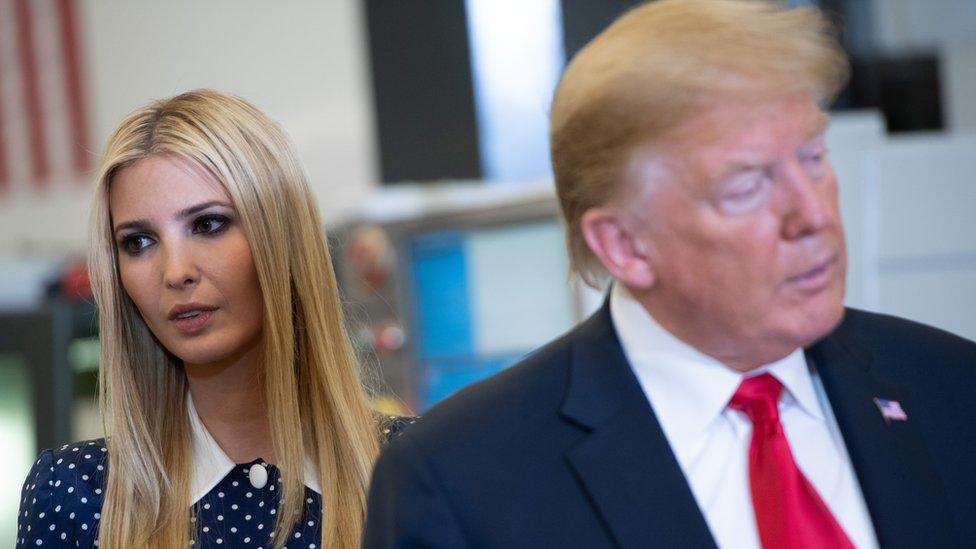
- Published18 February 2017
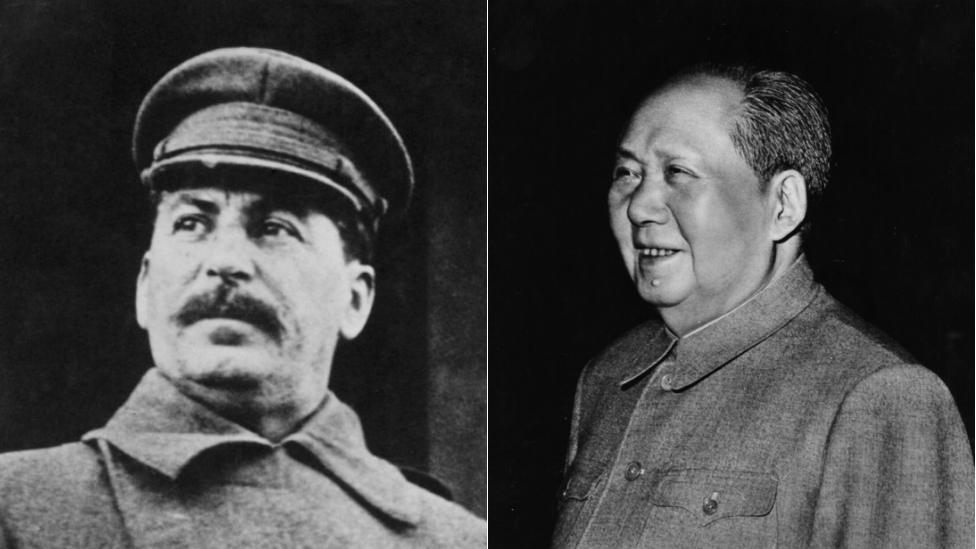
- Published29 July 2018
